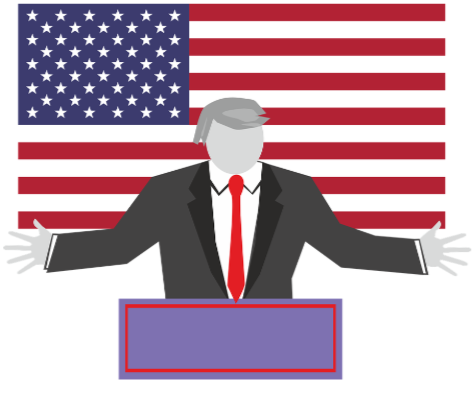President Donald Trump declared a national emergency on Feb. 15 after signing a spending bill that would avoid a government shutdown. Congress had made it clear this money was not to go to the proposed border wall. Instead, it was supposed to go to border barriers.
A national emergency is a threat to the nation that is not predicted. According to the National Emergencies Act of 1976, the President has access to a wide range of special powers during the time of a national emergency. Each president has declared one since the adoption of the Act. President George W. Bush declared a national emergency after the attack on 9/11 and President Barack Obama did the same during the Swine Flu outbreak. National Emergencies aren’t rare; however, the use of national emergency powers in this particular instance is.
In President Trump’s press conference, he explained his reasons for declaring a national emergency, including how the border wall would solve problems with drug cartels as well as with human trafficking.
“Ever since the declaration of a national emergency, my family has been afraid,” an anonymous Hispanic student at Northwood said. “Just knowing they want to create this border wall, I’ve noticed a lot more racial comments from people. They tell us to go back to our country and to stop speaking Spanish because ‘This is America,’ and they’re not joking.”
Chris Atkins is an English as a Second Language teacher who works with immigrant students.
“There is always a level of anxiety with my students about this particular issue,” Atkins said. “With the ICE raid that happened last week that followed the national emergency, I got a lot of requests to text others during class to warn them and make sure they were ok.”
National Public Radio conducted a survey asking Americans if they approve or disapprove of President Trump’s declaration of a national emergency to build the southern border wall. What they found was that 6 out of 10 Americans disapprove of the President’s move.
“My family personally believes a wall needs to be built but we think that declaring a national emergency is a bad idea just because that’s not how America is supposed to work and it sets a bad precedent for the future,” said Northwood senior Harper Johnson. “On top of that, I think it’s a bad idea for presidents to do whatever they want. I’m in favor of what he’s trying to do but I think that the way he’s trying to do it… I would be unhappy if I was on the other side. I think that’s a bad way to do business and that’s not how America was created to make laws.”
Although representatives are against Trump’s national emergency declaration, there are those that believe the President has the right to declare the national emergency. Lieutenant Governor Dan Patrick of Texas stated last month that he would be “all in” on the declaration.
White House Chief of Staff Mick Mulvaney showed his support of the President by stating that “Presidents have the right to defend the nation.”
According to AJ+, the reason this national emergency is controversial is because the president has been vocal about using national emergency powers to go against Congress for funding. In our country, Congress is the branch of government that has “the power of the purse.” In other words, Congress has the ability to provide funds for projects that are agreed upon and to withhold money from projects on which they don’t agree.
“Congress should respond with not only going for more of a democratic seat but to try to be able to block as many votes for the wall as possible,” junior Derek Cohen said. “But when you’re in a state of emergency it makes it almost impossible to do that.”
Congress can pass a joint resolution to end the national emergency; however, this resolution has to be approved by the president, which will most likely not happen. If Congress gets a two-thirds majority vote, they can override the veto and end the national emergency declaration. It is not certain as to how a resolution could be reached. According to USA Today, the Senate is most likely going to pass a resolution which would block President Trump’s national emergency. If passed, the resolution will be sent to the President’s desk which he will likely veto. The House can override the veto with a two-thirds majority.
-By Charlie Hatch



